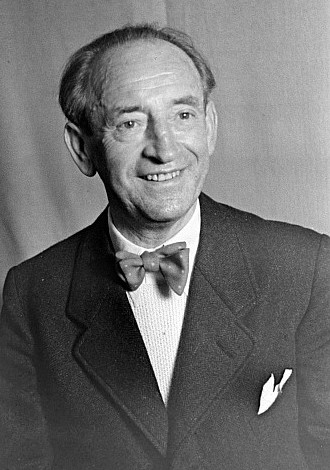„Pracuji a sbírám síly jako mech, který se rozprostírá po lese a dává mu nádherné barvy.“
Zdroj: Největší malíři: Život, inspirace a dílo. Němečtí expresionisté, č. 107, Eaglemoss International, Praha 2000, s. 26, ISSN 1212-8872
Max Pechstein byl německý malíř a grafik. Od roku 1906 byl členem expresionistické umělecké skupiny Die Brücke, byl jediný z uměleckého okruhu této skupiny, který měl formální malířské vzdělání. Po krizi v Berlínské secesi stál u zrodu Nové secese. Udržoval kontakty s umělci skupiny Der Blaue Reiter.
Krom silného expresionistického vlivu se také za svého mládí se ve Francii seznámil s fauvismem. V jeho umění se objevoval také vliv primitivismu, nakonec podnikl výpravu do oblasti Oceánie, kde mohl studovat primitivní kmeny. Od nacistů se mu dostalo označení zvrhlý umělec.

„Pracuji a sbírám síly jako mech, který se rozprostírá po lese a dává mu nádherné barvy.“
Zdroj: Největší malíři: Život, inspirace a dílo. Němečtí expresionisté, č. 107, Eaglemoss International, Praha 2000, s. 26, ISSN 1212-8872
Zdroj: Lorenz, Ulrike, Brücke, Taschen, Köln 2008, s. 16, ISBN 978-3-8228-5471-6 (dále jen Lorenz)
As quoted in German Expressionist Painting, Peter Selz, University of California Press, 1974, p. 313
Pechstein and others initiated in Nov. 1918 in Berlin the Novembergruppe, a socialist artist-group, competing then with Die Brücke
“Contented sleep releases the limbs. We await full moon. Await the dance!”
4 short quotes of Max Pechstein, 1918, in Aus dem Palau-Tagebuch, 'Das Kunstblatt' 2, no. 6, p. 179; as cited in 'The Revival of Printmaking in Germany', I. K. Rigby; in German Expressionist Prints and Drawings - Essays Vol 1.; published by Museum Associates, Los Angeles County Museum of Art, California & Prestel-Verlag, Germany, 1986, p. 43
quote, c. 1920; in Buchheim, Künstlergemeinschaft Brücke, p. 303; as cited in 'The Revival of Printmaking in Germany', I. K. Rigby; in German Expressionist Prints and Drawings - Essays Vol 1.; published by Museum Associates, Los Angeles County Museum of Art, California & Prestel-Verlag, Germany, 1986, pp. 40-41
In his letter in 1920, to de:Georg Biermann; as quoted in Georg Biermann - Max Pechstein, Leipzig 1920, p. 14
Pechstein answers Biermann's question: 'which 'primitives' had influenced him in his early painting style'
Buchheim, Künstlergemeinschaft Brücke, p. 304; as quoted in 'The Revival of Printmaking in Germany', I. K. Rigby; in German Expressionist Prints and Drawings - Essays Vol 1.; published by Museum Associates, Los Angeles County Museum of Art, California & Prestel-Verlag, Germany, 1986, p. 54
a later quote of Pechstein; as quoted in Brücke und Berlin: 100 Jahre Expressionismus, ed. Anita Beloubek-Hammer; Nicolaische Verlagsbuchhandlung, Berlin 2005, p. 266 (transl. Claire Albiez)
about the cause of the break-up of Die Brücke group in 1913: the harsh city-life of Berlin. Pechstein himself already was removed from the Brücke group in 1912 (one year before the definite break) because he went against the self-imposed rule of die Brücke to only exhibit together - when he decided to show also his art at the 'Berliner Secession'.
from a note of Pechstein; as quoted in Expressionism, a German Intuition, 1905-1920, [exhibition-catalogue 1980-81]; Paul Vogt, Horts Keller, Martin Urban, Wolf-Dieter Dube, and Eberhard Roters; Solomon R. Guggenheim Foundation, 1980, p. 5
in his early youth
As quoted in German Expressionist Painting, Peter Selz, University of California Press, 1974, p. 90
as quoted by de:Wolf-Dieter Dube, in Expressionism, de:Wolf-Dieter Dube; Praeger Publishers, New York, 1973, p. 89
Pechstein is recalling the Summer of 1910; as quoted in Expressionism, Wolf-Dieter Dube; Praeger Publishers, New York, 1973, p. 30
Quote of Pechstein in Expressionism, de:Wolf-Dieter Dube; Praeger Publishers, New York, 1973, p. 32-33